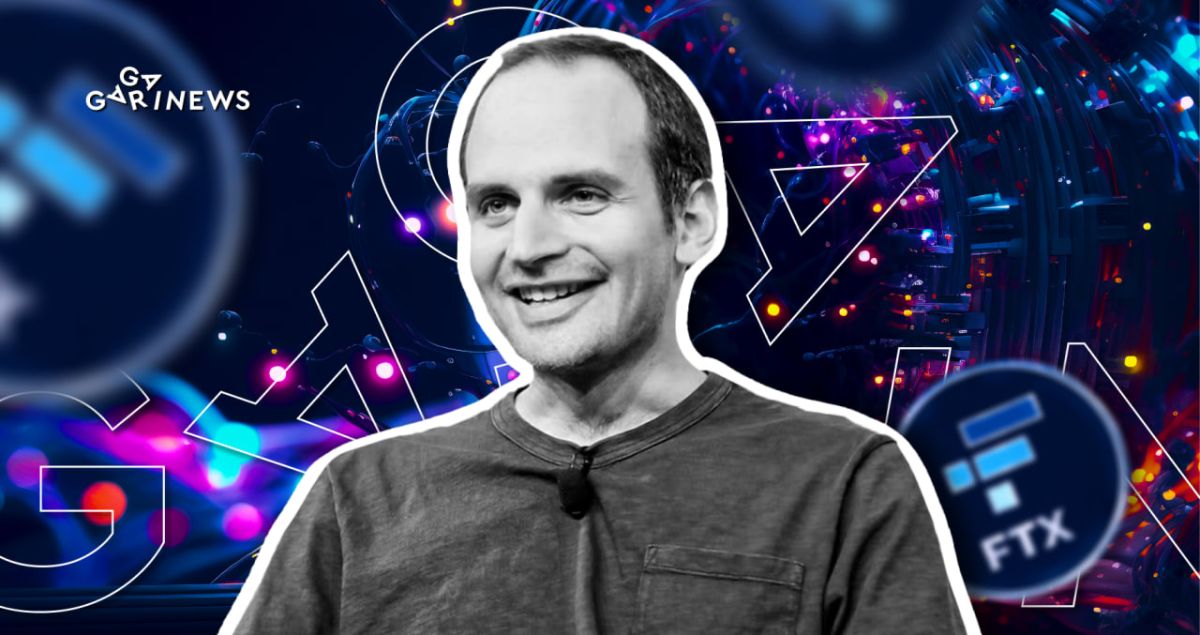Brett Harrison: Today Marks a Turning Point for Crypto Exchanges

Brett Harrison, the former CEO of FTX in the US, is advancing a novel software product for investors under the Architect Financial Technologies initiative. Thanks to ChatGPT’s integration, users of Architect can effortlessly follow intricate trading strategies.
On this page
As Curly Sam remains under house arrest in the Bahamas and other top executives of the now-defunct FTX confess their guilt and cooperate with authorities, the former FTX CEO in the US is cultivating a fresh project. It's important to state that Brett Harrison has not been served with any criminal charges related to his tenure at Bankman-Fried. The principle of ‘innocent until proven guilty' stands, more so given that Harrison himself is consciously distancing from his former employer and the downfall of FTX.
I never could have guessed that underlying these kinds of issues — which I’d seen at other more mature firms in my career and believed not to be fatal to business success — was multi-billion-dollar fraud
Brett confesses
The central idea behind Architect Financial Technologies is to offer institutional-grade tools not just to hedge funds and management companies, but to regular investors as well. In Harrison's view, AI can aid in lowering the “entry barrier” to the crypto market by automating or simplifying trading strategies. For instance, GPT can be used for cross-exchange arbitrage.
Of course, Brett acknowledges that his association with Curly Sam has somewhat tainted his reputation. Hence, in his recent interview with Bloomberg, he insists that his new venture has a purely practical focus. Architect neither handles clients' funds nor executes trades on their behalf. The developers are committed to crafting a secure software that would allow users' devices direct access to the exchanges.
We're preparing for a world in which the lines between traditional and digital assets continue to blur… we want to make sure that customers can trade seamlessly to every kind of exchange model from the most traditional to the most decentralized all from one single interface
explains Harrison
When the dialogue veered towards the topic of the SEC's (Securities and Exchange Commission) lawsuits against Coinbase and Binance, Brett Harrison conceded: regulatory ambiguity has resulted in liquidity discrepancies within the exchange sector. He anticipates a widening chasm between completely regulated spaces—such as the CFTC (Commodity Futures Trading Commission)-controlled derivatives markets—and the less regulated arenas, for instance, exchanges outside of US jurisdiction.
Brett Harrison discusses his project, Architect Source: youtube
Harrison voices hope that the SEC and CFTC will apply diverse strategies instead of solely depending on long, costly legal disputes. With the regulatory landscape still vague, the promising future of the crypto industry seems to be outside America.
We're seeing a real turning point for exchanges, a bifurcation of liquidity into what I'm going to see call as the heavily regulated space… and the very unregulated space of non-US exchanges
states the CEO of Architect Financial Technologies
Simultaneously, Harrison asserts that a strong institutional belief in the growth potential of crypto assets remains within the U.S. Traditional exchanges are scrutinizing various approaches to cryptocurrency trading, including the integration of staking and lending with trading. As for non-custodial exchanges, Brett is confident that the model where market players facilitate asset transfer without owning them holds the most promising scaling prospects.
The content on The Coinomist is for informational purposes only and should not be interpreted as financial advice. While we strive to provide accurate and up-to-date information, we do not guarantee the accuracy, completeness, or reliability of any content. Neither we accept liability for any errors or omissions in the information provided or for any financial losses incurred as a result of relying on this information. Actions based on this content are at your own risk. Always do your own research and consult a professional. See our Terms, Privacy Policy, and Disclaimers for more details.



























